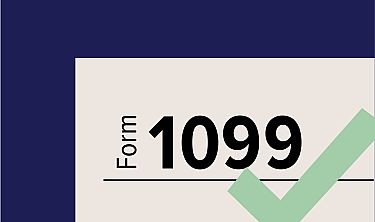Math may have been your favorite subject in school, but that doesn’t necessarily mean you should be your own accountant. Managing the books for a small business includes a lot more than just adding, subtracting and moving decimal points around.
When you decide to seek the services of a professional accountant, what should you know in advance? We asked four members of the American Institute of CPAs’ National CPA Financial Literacy Commission how to make the right decision when hiring a small-business accountant.
1) Understand Your Needs
First, assess what you need from an accountant. “If you first understand why you need an accountant (for your particular situation), it will better help narrow your options,” says David Almonte, CPA. Once you know what you’re looking for, Almonte says, make sure the person you choose can provide you the level of interaction you need.
Why might you need an accountant? First, an accountant can help you understand the tax code and avoid missteps (and expensive fines). An accountant can also help you find deductions and tax credits.
Second, an accountant can help you plan for the future, recommending areas where you could spend more or less in order to grow your business, and helping you understand how much money you need in reserve if you plan on expanding the operation.
Finally, depending on how fast your business is growing, you may have employees, contractors, partners or vendors working for you. Each new addition further complicates your financial picture, and an accountant can help you keep everything straight.
2) Know Where to Look
After you decide that you really do need an accountant, where’s the best place to find competent, qualified individuals? Almonte says you can start by asking for referrals from people you trust (friends, colleagues and family members).
Diane Wightman, CPA, suggests asking business colleagues who they work with. “Often the best CPAs don’t advertise and aren’t looking for new clients, but will explore and listen to interesting opportunities — and that’s the one you want!”
If your personal and business contacts don’t have any leads for you, there are still a lot of other options. “Take a look at your state or local CPA association website,” advises Tracy Miller-Nobles, CPA. “There are often directories of CPAs on the website with their areas of specialties.”
Also, Dr. Sean Stein Smith, CPA, adds another option. “Check with your local chamber of commerce to see if they have any recommendations — it's their role to help local businesses and entrepreneurs.”
3) Verify Credentials
After you’ve found potential accountants, you need to confirm their credentials.
“Ask about the accountant's experience and certifications relevant to your needs,” says Almonte. However, he warns, “Do some due diligence. Do not just take their word for it — look up CPA licenses on public state databases.”
Wightman adds that your state Department of Regulatory Agencies should be able to share accountants’ licensing status and any sort of violations.
The primary certification you’re looking for is a CPA license. CPAs are licensed to practice in their respective states, which is important if you ever need your accountant to represent you in a financial matter. Also, the CPA designation means they’ve been through extensive training and are skilled in handling taxes, audits, regulations, and financial records.
4) Conduct Interviews
Interviewing a prospective accountant is the best way to decide if they’re a good fit. “Don't hesitate to ‘interview’ several CPAs before you decide on the right one,” says Miller-Nobles. “You want a trusted advisor and someone who fits well with your financial goals.”
So, what types of questions should you ask? “Talk to the prospective CPA about their practice — who are their ‘usual’ clients?” recommends Smith. “They don’t have to disclose any identifying or confidential client information, but if you are going to be their first freelance or entrepreneurial client, that is a good thing to know ahead of time.”
5) Consider the Cost
Smith says you also need to find out what services you’ll receive for the fees you’re paying. “For example, are they going to be handling your estimated quarterly tax payments (reminding you to make them), or are they someone you are only going to deal with on an annual basis?”
Almonte warns against looking for the cheapest possible option. “When it comes to tax advice, looking for the lowest bidder is not the route you want to go — look for value versus low fees and understand there is a big difference,” Almonte says.
Finding the right accountant is crucial to running a small business, since they have the expertise to help help you avoid mistakes and take your business to the next level. Once you understand what you need, do your research, look for experience and certifications, and do an interview to make sure you’ve found the right person for your situation.





